ThugPop's meditation
Along with NYMPH, all other content created by THUGPOP will live on his new online platform, ThugPop.farm.
Listen below.
Stay informed on our latest news!
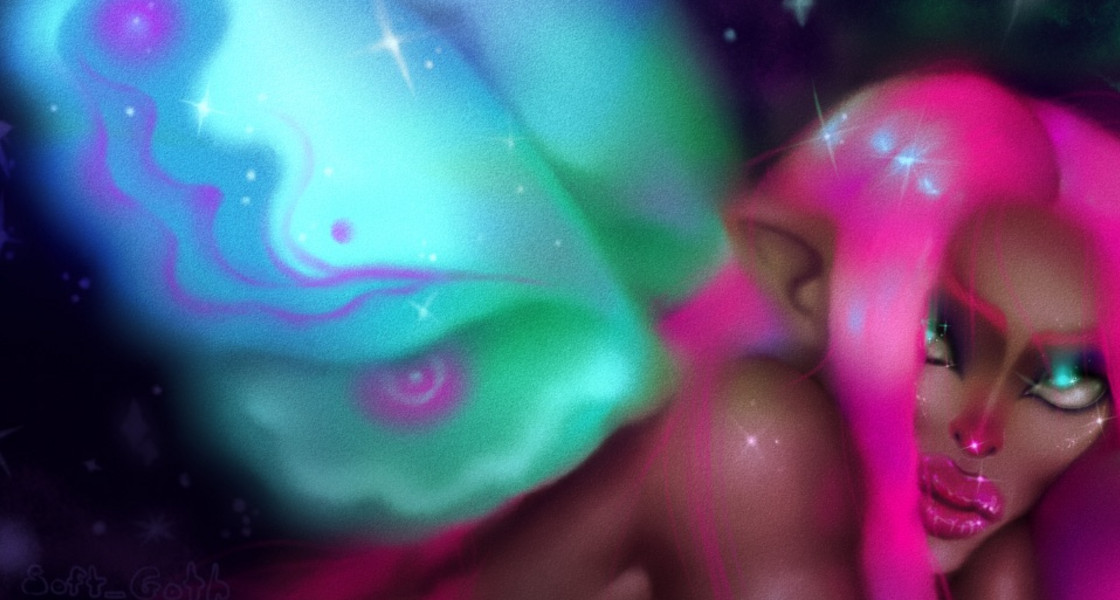
Along with NYMPH, all other content created by THUGPOP will live on his new online platform, ThugPop.farm.
Listen below.
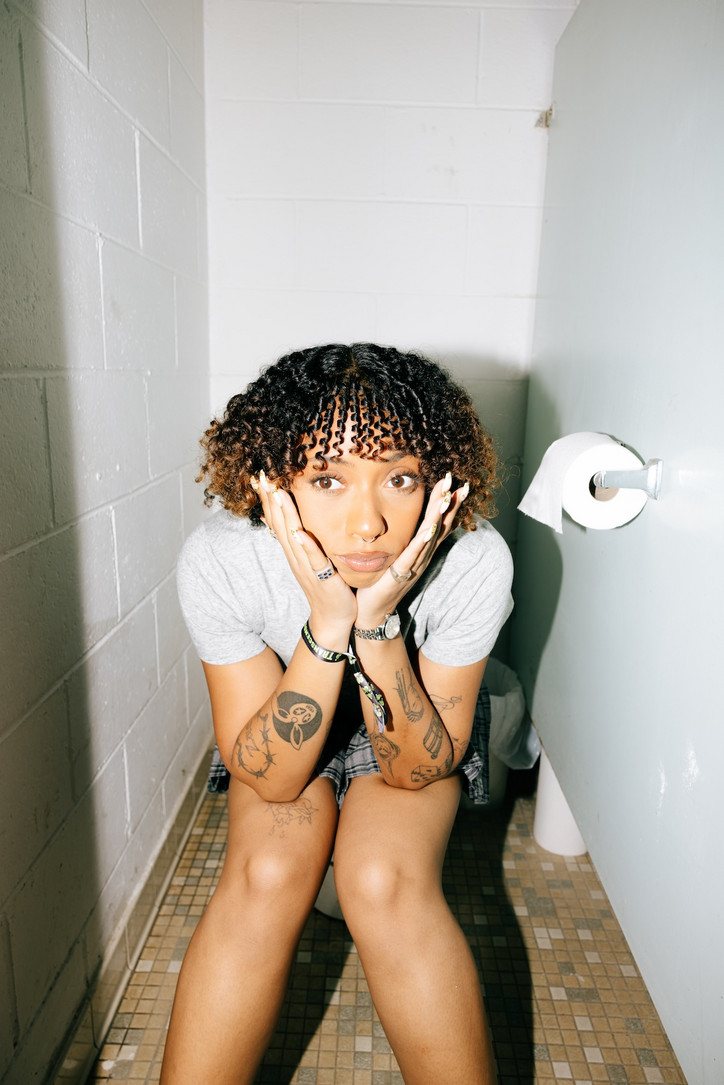
With the critically acclaimed April release of her debut LP Silence Is Loud, Nia corrals disparate feelings of identity and situationship-fueled angst into infectiously danceable beats, culminating into exploding “My ex ain’t shit” moments and euphoric dancefloor catharsis. As a result, Nia has been skipping from country to country on a never-ending bender of performances, delivering literally floor-shaking sets at 170 BPM breakbeat-like speeds.
We had the chance to catch up with Nia at the tail end of May, just before she embarked on her long Great Junglist Summer tour. We discussed Amy Winehouse comparisons, taking a British sound worldwide, and wanting to call New York home when it’s all said and done.
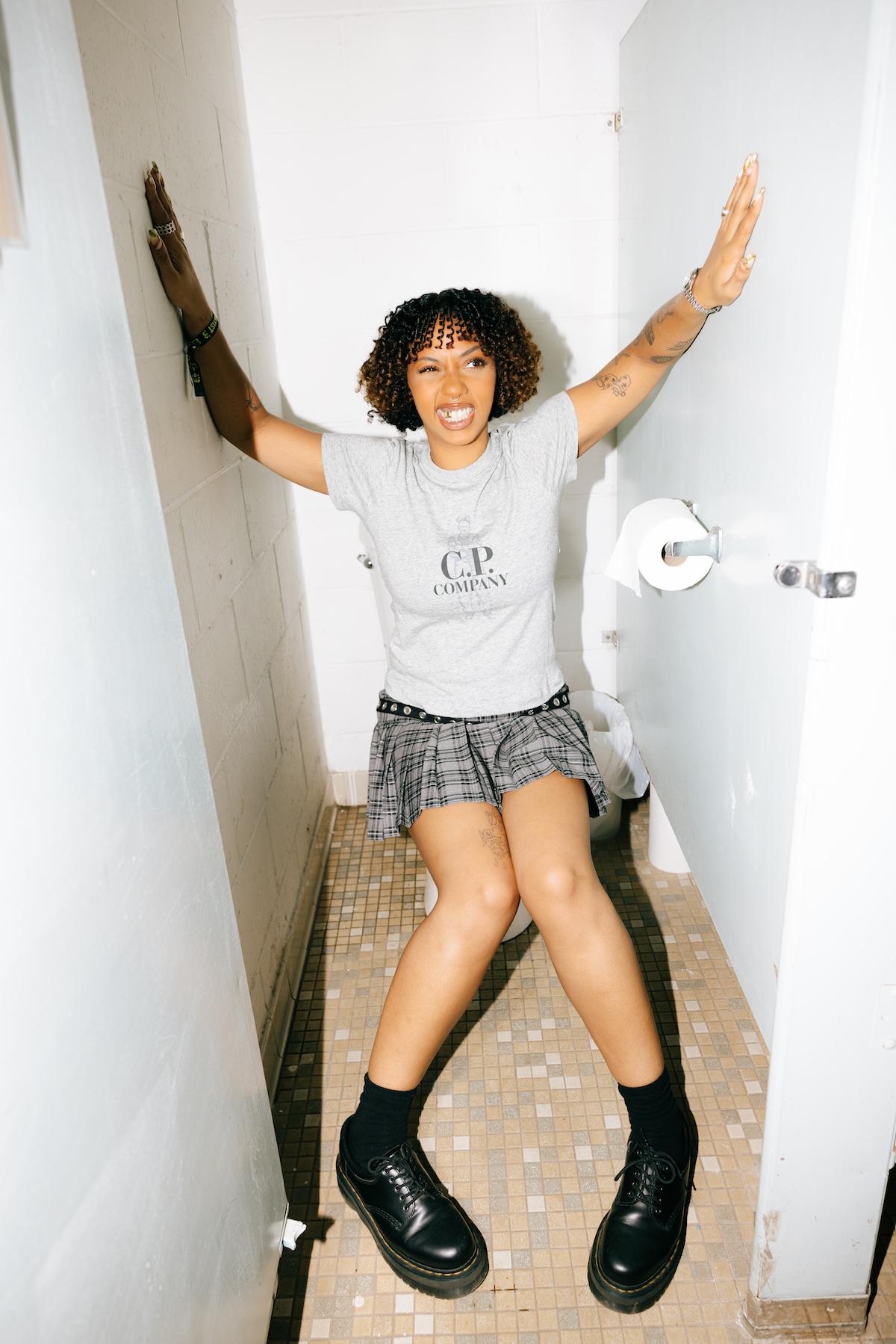
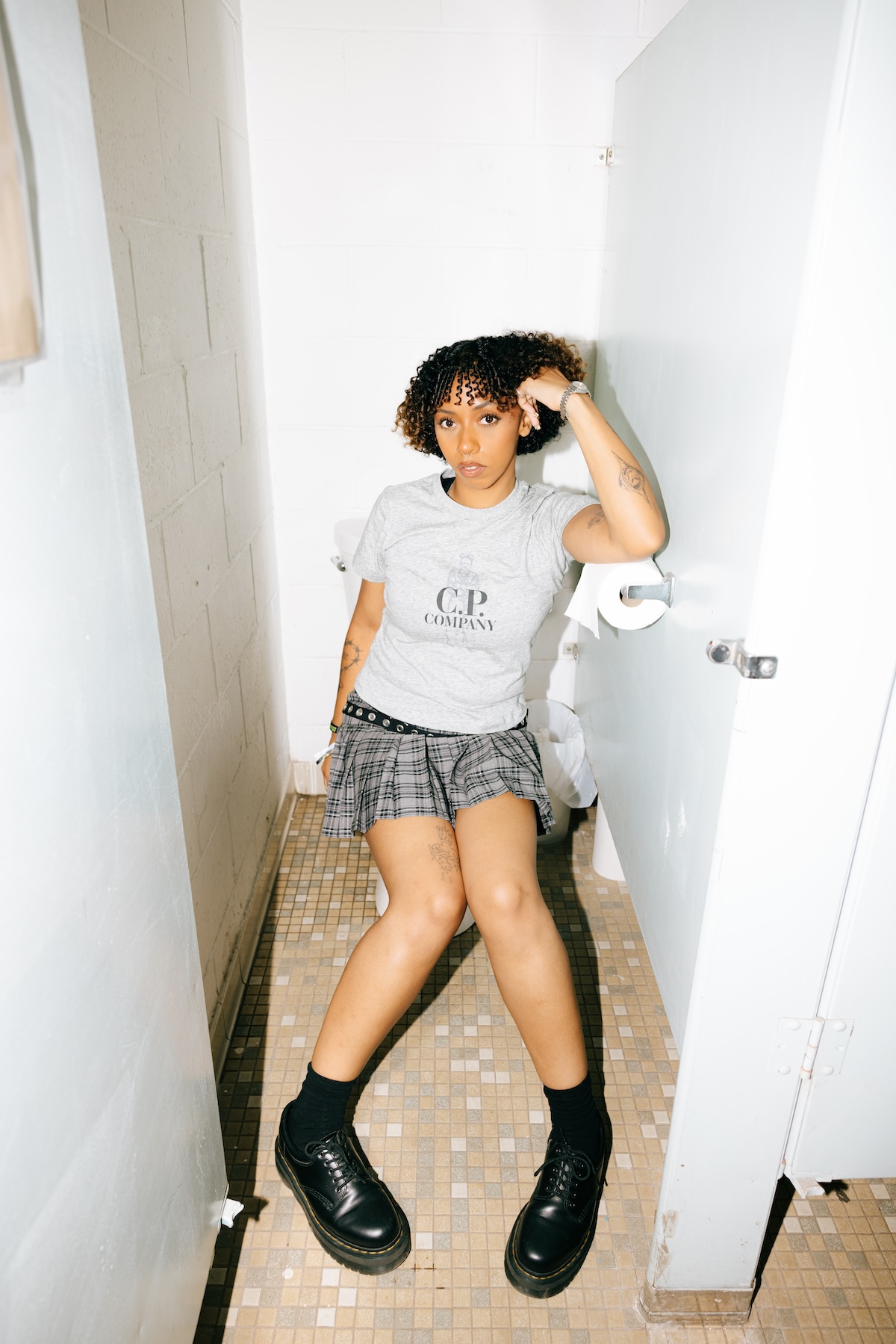
Jack Kissane— During your United States mini-tour, you stopped twice in Brooklyn where I saw you at Elsewhere’s rooftop, and at one point during the show, one of my neighbors was like, ‘Oh my gosh, the floor is a trampoline.' Did you hear about that?
Nia Archives— Yeah, I heard the floor was bouncing! [Laughs]
At that show you mentioned that it was your first time playing Silence Is Loud across the pond in the U.S. What was it like finally bringing your new material to a fresh audience?
Yeah, it was really cool, you know. This American trip felt so different from when I've been before. I don’t know if it is just because I've released an album recently, but it just felt super different and I felt like my music was connecting with people a bit more than it ever has. I've been to America three times. That was my fourth time, and it just felt like [audiences] were finally understanding the tunes and stuff and they were really receptive to it. So it was really cool. It was really nice to play out all this music that I've been working on for so long as well.
That project has really been soundtracking my summer so far through good times and bad. Like it really might be the quintessential crying in the club soundtrack for me. More than that, though, I love how you pair these fast-paced production with the serenity of your vocals and reflective lyrics. Was there a specific moment or song you made where it all clicked for you?
Yeah, I'll probably say I made my first tune actually, "Sober Feels," I'd made a couple of tunes that were similar vibes, but they were more production vibes and I wasn't really singing as much. I made "Sober Feels" in 2020 during the lockdown, and I have a really weird process of writing songs. I don't really write to jungle, which is weird because I make jungle, but I write to slow beats, and then I'll remix my own songs basically. And I've always liked making quite emotional music, but I didn't want to be an emotional artist. I didn't want to make deep songs because I didn't want to be at a gig and everyone's just crying to my music. That's just not my vibe. I want to dance to my music. So it was a really conscious decision to make dance music and I love jungle, so that melancholy jungle vibe just felt right for me and how I wanted to express myself.
That's so interesting! So essentially, you're remixing your own tracks like a Junglist DJ would remix a club hit to make it jungle?
Yeah, pretty much! It's a fun process. It allows me to focus on one thing at a time with the songwriting and drums because in my brain they’re like two separate things. That's always just been the way that I've gone about it really.
As a self-proclaimed emotional journalist, you harness themes of being misunderstood, feeling lonely, and dealing with heartbreak into these incredibly addictive and infectiously danceable tracks and you perform them so jovially with your arms swinging in the air and all that. Does performing these tunes provide a feeling of catharsis? And does it help you confront those hard-to-process feelings?
I think so, yeah. I think I'm an emotional person, but I'm not really an outwardly emotional person unless you catch me on a bad day. [Laughs] So I think music is kind of my way of expressing myself and just putting those tough emotions somewhere and it's kind of productive because if I'm feeling shit or whatever, I at least get a song out of it, and wasn’t just feeling shit. So that's kind of why I've always gone for that. And I really admire Amy Winehouse. She's a huge inspiration to me as a songwriter, and I love how she's got these really dark lyrics, really sad stories on these really happy beats. You wouldn't know it was such a deep song unless you really tapped into what she's actually saying. So there's definitely some inspiration there as well.
How does it feel to be at the forefront of the revival of a genre like jungle that is so quintessentially a part of your British culture's DNA?
It's weird. I don't really feel like I'm at the forefront or reviving anything. I think my view on it is just genuinely, I feel like I'm just pushing [Jungle music] forward. I feel like this music has been around for so long, 30 years, it's been thriving in the UK underground scene and it's definitely had its crossover moments. But I think for something to exist for so long, there's always got to be young people that come and then they make their sound and then they introduce it to their age group and then the next age group. And I think I'm just part of the next generation of junglist pushing it forward, but then there'll be another generation younger than me. It's just the cycle, really.
Speaking of the next generation of Jungle music, how did you meet Dazegxd?
I met him at The Lot Radio show in 2020, maybe two years ago, I think now, or maybe a year and a half ago. And he came and he was stood outside with loads of his friends. I was like, ‘Oh, this is quite cool. I wasn't expecting anyone to be here.’ And then he gave me a USB and he said he really loved my tunes. I was like, okay, I'll listen to this USB. And then I heard that he was doing jungle bits and stuff. I was like, ‘Oh, that's really cool.’ He was like, 20 at the time, and I asked him, ‘So do you want to come to the club?’ And he was like, ‘I can't’ because obviously [the legal drinking age] in America is 21. I was like, ‘Oh fuck I forgot about that!’ But I connected with him. I thought he was really cool. He also looks exactly like my little brother, so I've had a little bit of an attachment to him since the first time I met him, which is weird. [Laughs] But he's accepted it, so it's all good.
I just had a bit of a soft spot for him, and then we just kept staying in contact over the last couple of years. And then at the end of last year I was playing at the Knockdown Center. I got him on The Lot Radio at my Up Your Archives show. And then I got him to play at the show as well. And he just came to London recently and he literally was hanging out with all my friends and he's just basically my New York jungle cousin. So it's called just to support the young people in New York and support the American new-gen jungle scene as well. So yeah, I've got a soft spot for Daze for sure.
British culture is so immediately apparent across your art’s expression spanning from medium to medium. To what degree does being from England play into who you see in the mirror? And as a result, how does that affect your approach to production, songwriting, making visuals, et cetera?
I think it's definitely a huge part of my identity. I'm dual heritage, so growing up in England, half my family's English, half my family's Jamaican, so I kind of had those both cultures growing up. And I'm very proud of my heritage, to be honest with you. I'm really proud of where I'm from, growing up in the north of England as well. There's a lot of subcultures going on, you know what I mean?
So I'm really proud of being from Bradford and Leeds. I lived in Manchester and I think the UK's got so much rich culture, especially in terms of music. And I've definitely just been a bit of a sponge and just soaked it all up from Radiohead to Burial. And obviously people like Goldie, Lemon D, all the jungle artists I love, and the art as well. So much amazing art that's come out from the UK, just like I love all of it. So I'm just super inspired by it.
I know that you wrapped up your New York to LA tour playing the Lightning In A Bottle festival [in May]. How was your experience there and how are you planning on carrying out your Great Junglist Summer beyond that?
Yeah, it was super fun, actually. I felt like Lightning In A Bottle was actually a really cool festival. I thought it was really good vibes. Actually one of my favorite days, I think for a while, because I got to meet M.I.A. after her set. I watched her set from the crowd, which was so cool, because I like watching things from the crowd sometimes because you get to see the full production. It was one of the best sets I've ever seen in my life. I'd never seen a set of hers before. I was like, this is amazing. And then I got to meet her and obviously, she's such an inspiration to me. So that really topped off the festival experience and the show went really well, and it was really cool. I really enjoyed it. And we did a little party in downtown LA, which was super fun to cause a bit of chaos in LA as well. So that was really fun. But yeah, super excited for the summer, the Great Junglist Summer, starting this weekend, actually going to Ireland tomorrow morning. We're just going right back into it, but it should be fun.
That's awesome. Do you have a favorite city to play?
That’s a good question! I love New York. I want to live in New York like it’s definitely my favorite city in the world. I love Manchester. And I also love Tokyo in Japan. I really enjoy playing in Japan.

The EP feels like a long meditation, with each track carrying you to the next. Listening in different settings, I found it hard to pinpoint when one song ended and another began. Candace’s voice plummeted me deep into the valleys of her vocal cords, her vibrations lifting me back up through layers of sound and instrumentation.
Returning from a summer in Berlin, Candace seemed to be adjusting back into normal life. Much of the mind is a miracle was created there, in what she describes as an “unofficial residency.” Working with her bandmate Noah Becker and other artists, she expanded on the EP’s original demos, welcoming new ideas and perspectives.
As Candace spoke about her summer and the people she worked with, it was clear they hold a special corner of her heart. The collaborators were the driving inspiration for the mind is a miracle, with many songs “starting with people in a room rather than in creative isolation.” Candace started playing the songs live while on tour with Crumb, sampling her own performances to inform and shape the final tracks.
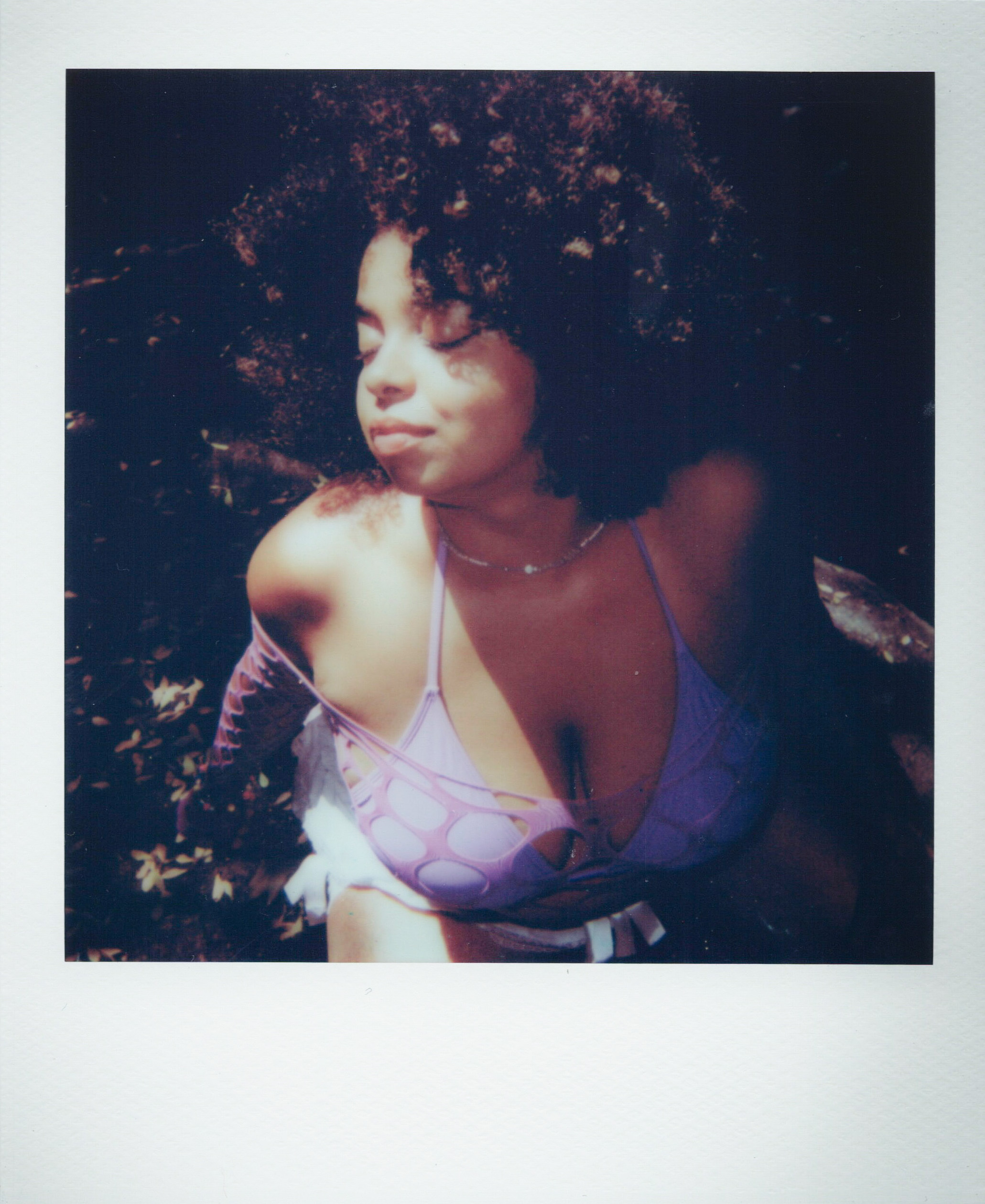
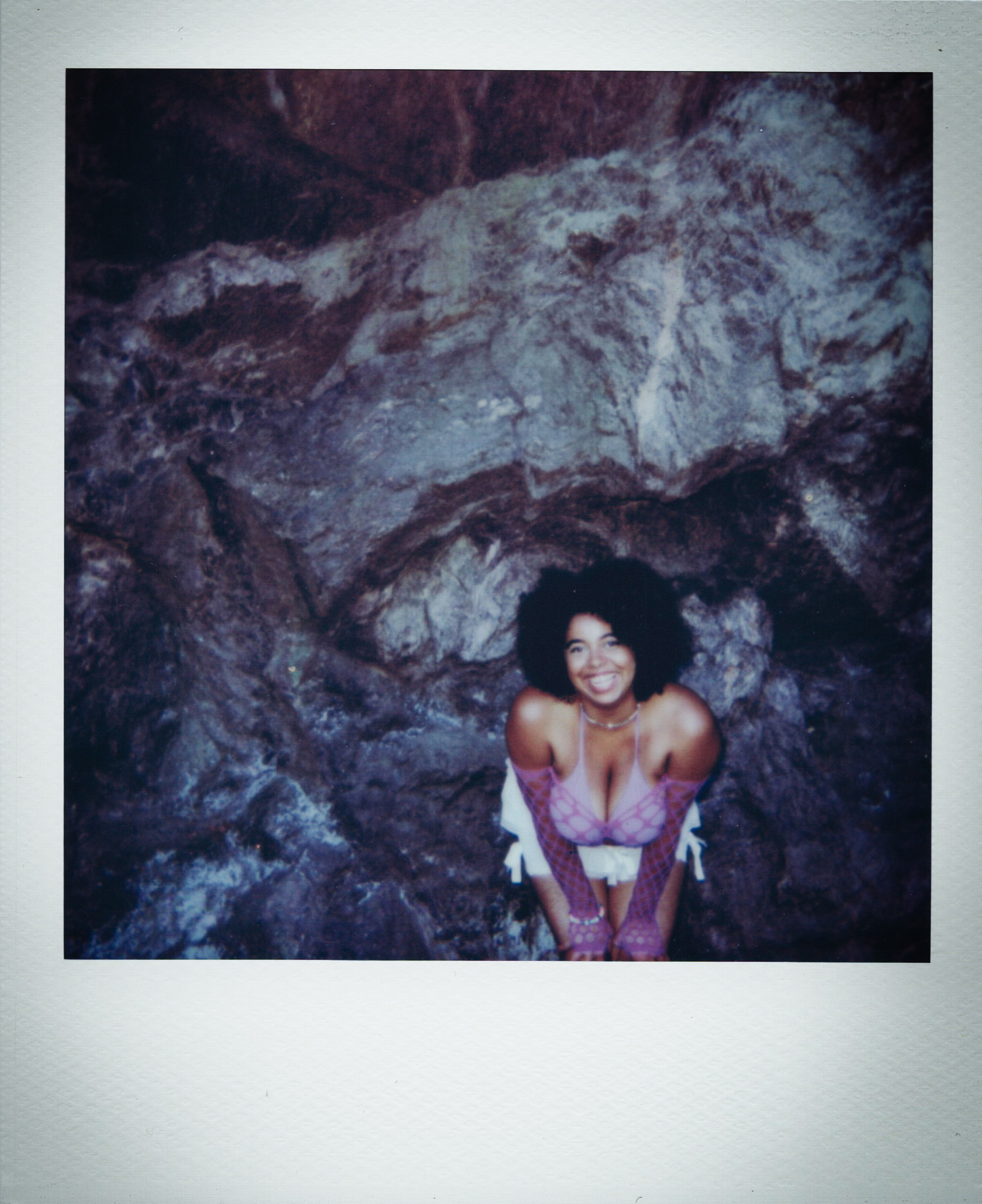
I admired how easily Candace embraced the shifts in her creative process — creating only when it felt right and letting go of expectations. Taking a bite of a pot sticker, she said, “It's so beautiful how we can work on something for a long time and see the many shapes it could take.”
Listening to the mind is a miracle, you can sense that organic evolution. Candace perfectly matched up different elements and sounds over time. From a recording of her best friend making breakfast to layers of a harmonizing bassoon, the EP feels like a long-form journal entry, capturing Candance’s life, mindset, and experiences over the four years it took to develop.
When I asked Candace the ideal setting for listeners to hear the EP, she responded with, “Honestly, I don't know if this music is listenable. You gotta be in the mood for it.” I beg to differ, but also love her answer. What the mind is a miracle offers is a different kind of listening experience that changes over time, whether it's through live performances or listeners’ personal perspectives.
In that way, the mind is a miracle feels timeless, forever morphing with intention.